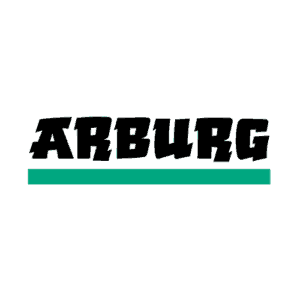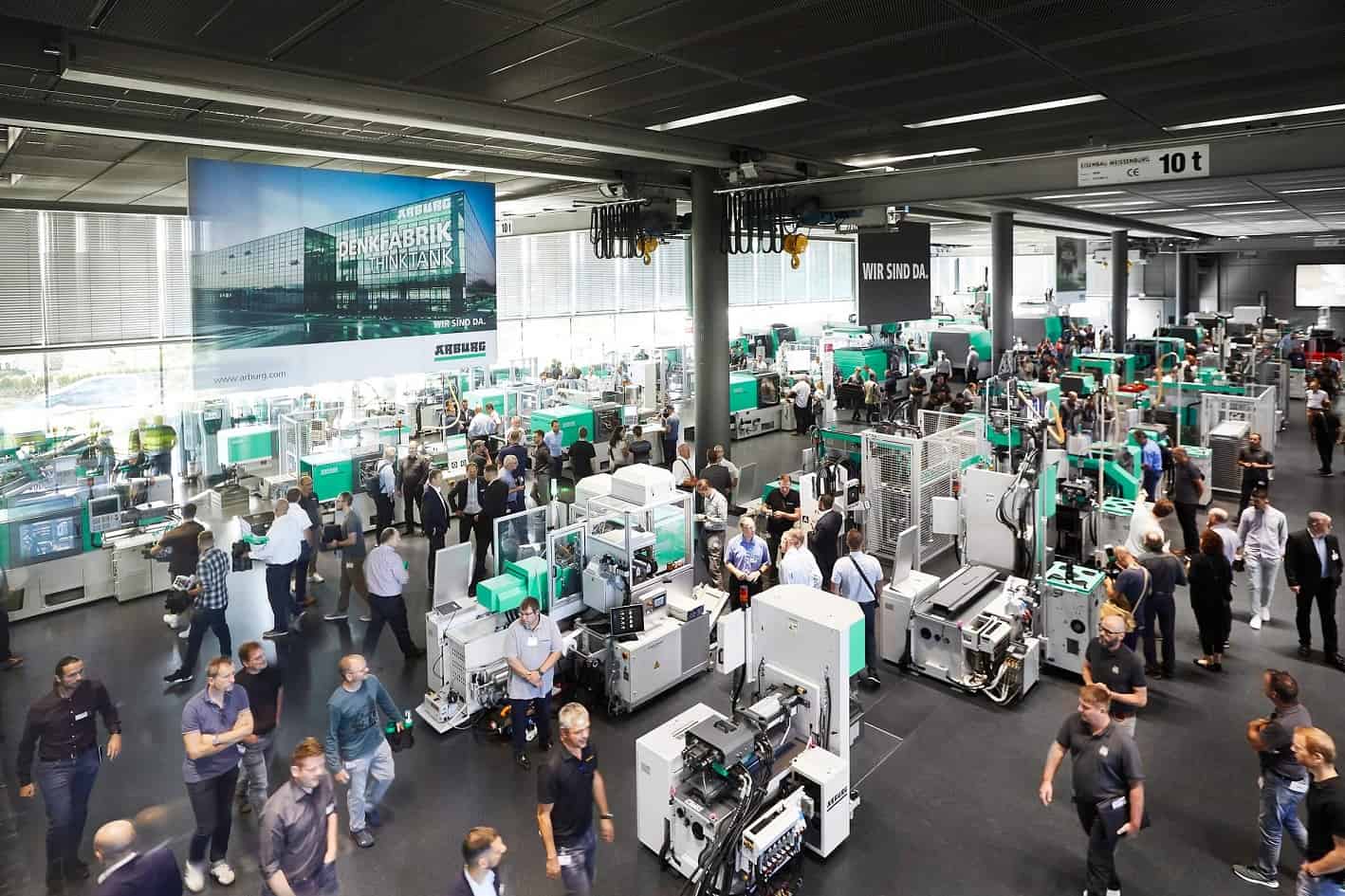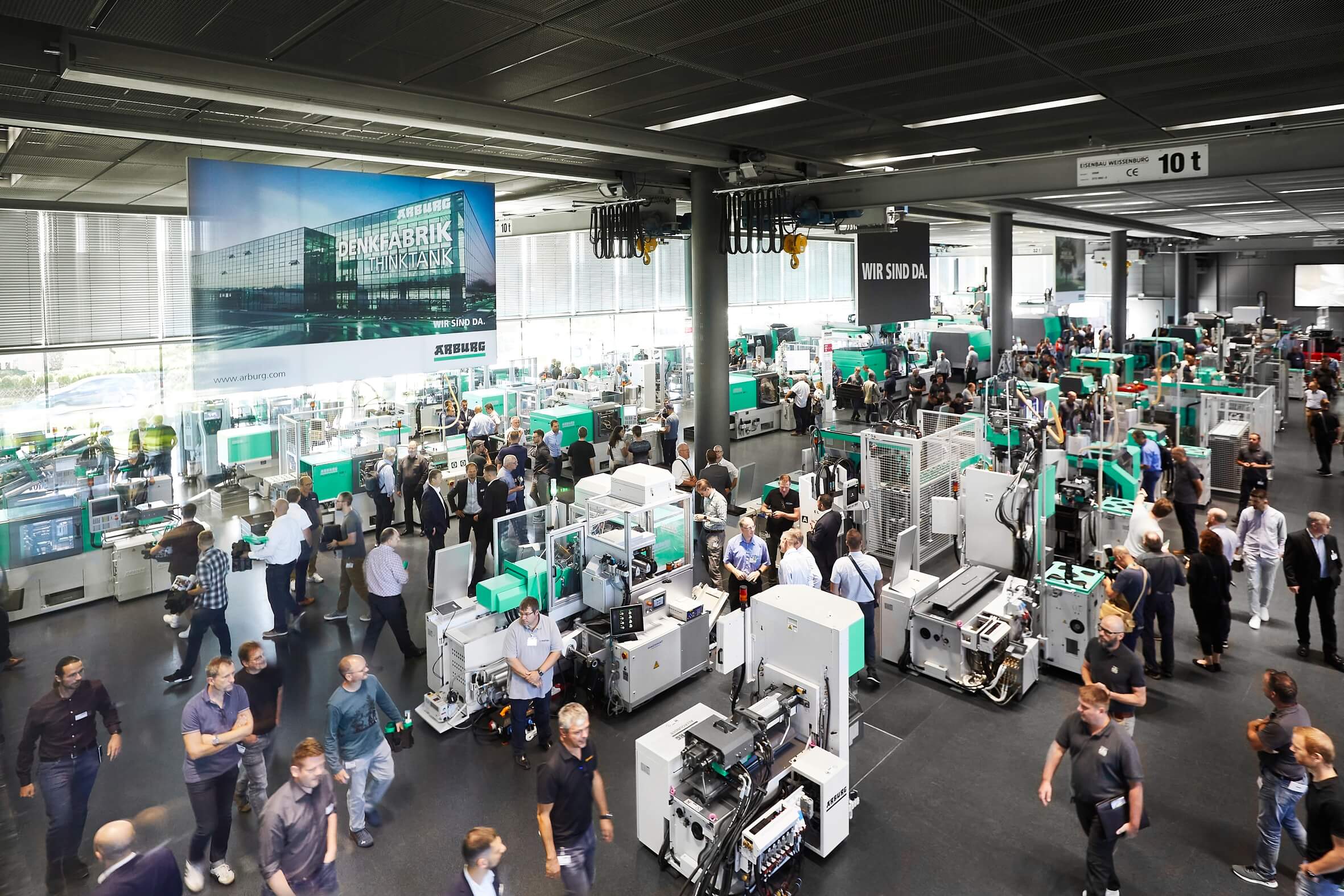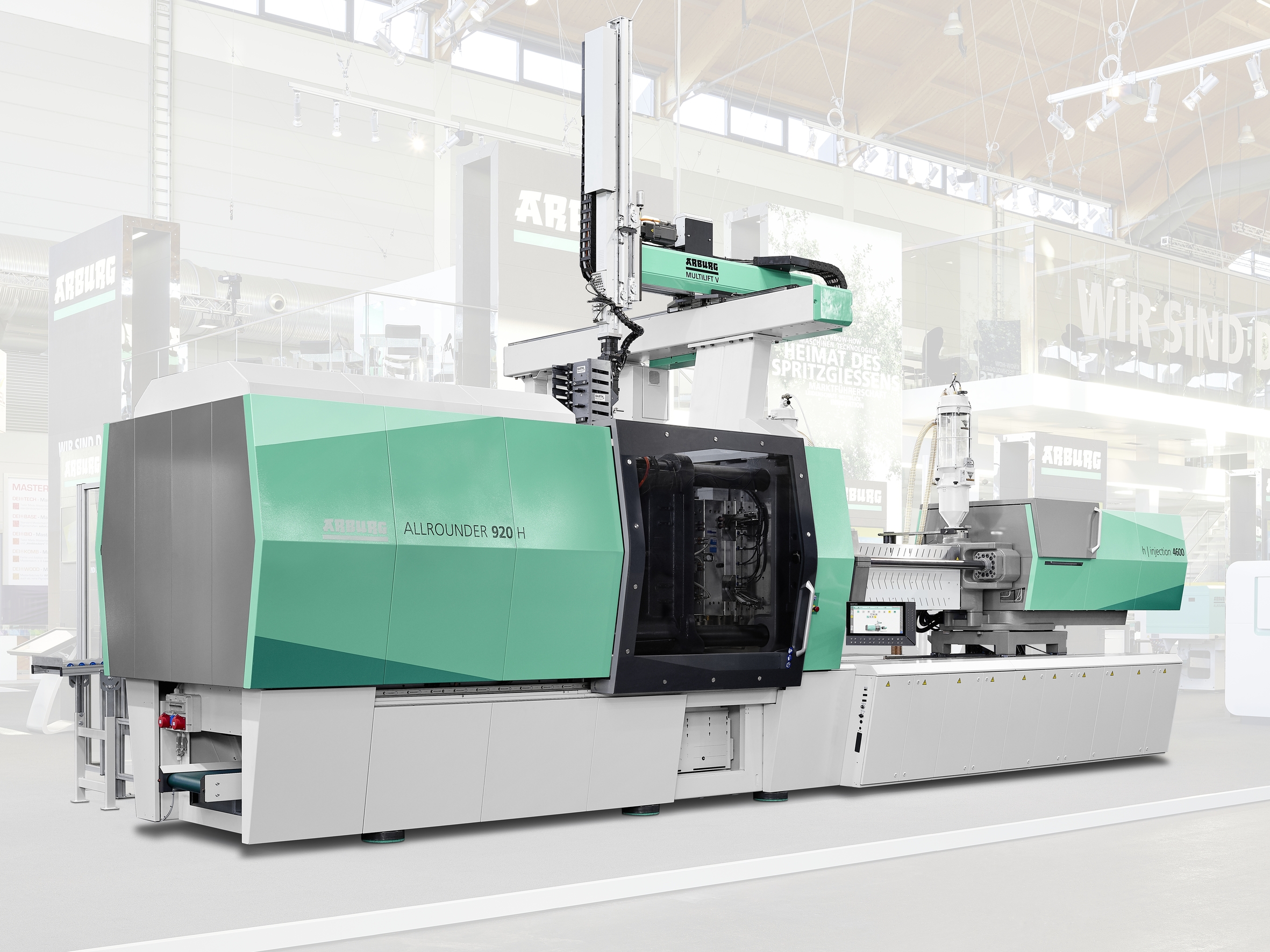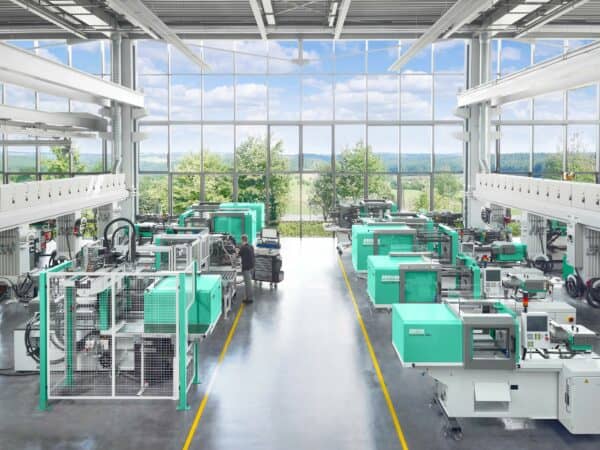
New Process Organization at ARBURG
In the plastics processing industry, too, the trend toward individualization is creating increasingly complex process landscapes. The machine manufacturer Arburg is responding to this with a comprehensive organizational change.
For most people, the day begins and ends with reaching for an injection-molded piece of plastic: the toothbrush. But also toys, the lids of beverage bottles or eyeglass frames are produced by injection molding. Many companies rely on machines for the manufacture of these products from the northern Black Forest. Because Lossburg is home to Arburg GmbH + Co KG, one of the world market leaders for injection molding machines.
Companies from the automotive, packaging, electronics, medical and many other industries also rely on Arburg’s high-precision and modular machines. “The level of customizing has increased strongly in recent years,” says Head of Technology Guido Frohnhaus, “and this development has not remained inconsequential, but ensured that our process landscape became increasingly complex.”
Although Arburg had already successfully introduced lean management methods in the traditional areas of production and assembly, the entire order processing and logistics processes now had to be adapted in order to master the new challenges. At the beginning of 2020, the “Shop Floor Management allround” project was therefore launched together with Staufen AG. Behind this is a comprehensive change at Arburg. The project incorporates all areas into Shop Floor Management (SFM), from materials management, purchasing and procurement to production and new product development. The goal: to establish a lean process for order processing throughout the company.
“Always 100 per cent ready to give information.”
A good two years later, project manager Sven Keinath, a partner in the fourth generation of the entrepreneurial families, draws a very positive result: “We have successfully introduced SFM in all technical areas. The structure of the boards is the same throughout the company, but the respective processes have been individually adapted to the needs of the individual teams.” After the introduction, it took an average of only three to six months at the most for all employees to really get to grips with SFM, adds Werner Faulhaber. “During this time, one or the other key figure was also revised once again,” says the Head of Development at Arburg.
Guido Frohnhaus also likes to convince himself of the success of the project progress to date with unannounced visits to the shop floor: “If I show up there all of a sudden, the teams are 100 percent informed at all times thanks to the boards.” SFM therefore not only ensures transparency at Arburg, but also provides security for everyone involved.
A new division as impetus
However, in order to fully round off the new order processing process, it was also necessary to intervene in the organizational structure. From the point of view of Arburg managers, this was the biggest change for the employees. “Previously, each area had its own logistics, then we centralized everything,” explains Achim Harter, the project leader responsible for this step. He also heads the new “Order Center” department, the centrally responsible entity for order clarification/ dispatching and order throughput. In the beginning, there was a bit of a rumble there, Harter admits: “Colleagues came from very different backgrounds and some had done their work differently before. However, Shop Floor Management has also helped us here to systematically look at and evaluate each process step. In the end, all employees got on board and were convinced that the new approach was a good one.
“Today, the new department is the driving force behind the entire machining process,” says Managing Director Frohnhaus. But without support from outside, this development in its breadth and, at first, sometimes painful depth would not have been possible from his point of view.
The consultants from Staufen held up a mirror to us efficiently and charmingly and helped us to find a solution together in a crisp way. Absolute plus points: always practice-oriented and always at eye level with all parties involved.
Guido Frohnhaus
head of technology, arburg Gmbh + co kg
Shop Floor Management ensures future viability
The project goal has thus been achieved, but the transformation at Arburg is far from complete. Digitalization (arburg- Xworld) and sustainability (arburgGREENworld) are important topics to ensure the future viability of the company. “Software development is also taking up more and more space in our company,” explains Guido Frohnhaus. “Simulations are a great lever for sustainability in the plastics processing industry, because they allow us to reduce material consumption.”
Head of Development Werner Faulhaber adds: “We are working intensively on optimizing drive and control technology as well as the material cycle – keyword: circular economy.” Here, too, the introduction of SFM is having a positive effect. Managing Director Frohnhaus: “We now focus on the key issues, get to decisions faster and work in a more agile way.”
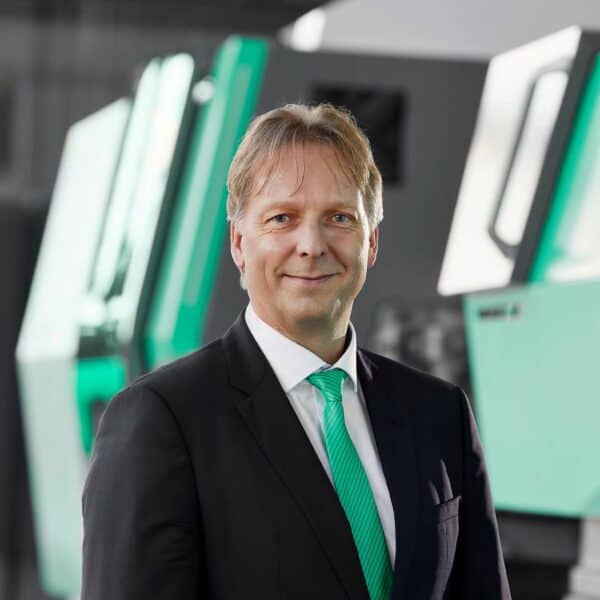
Werner Faulhaber
Head of Development
ARBURG GmbH + CO KG
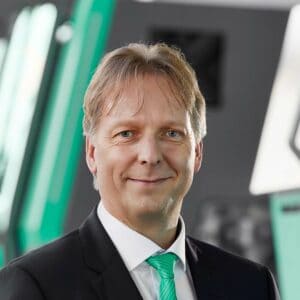
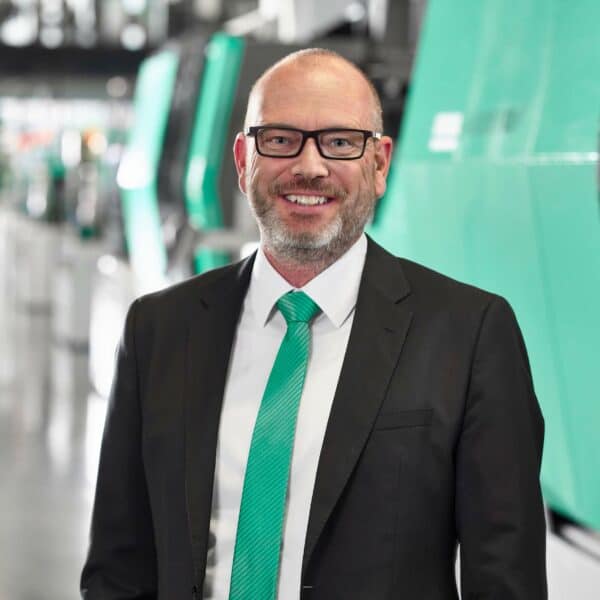
Guido Frohnhaus
Head of Technology
ARBURG GmbH + Co KG


Achim Harter
Project Leader
ARBURG GmbH + CO KG
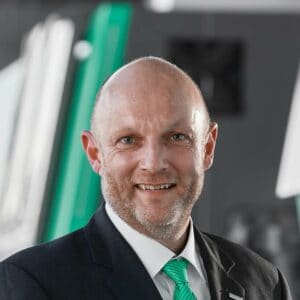
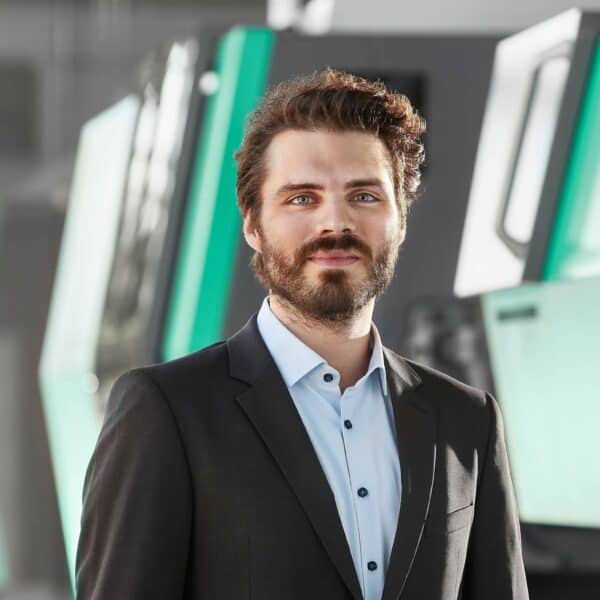
Sven Keinath
Project Leader
ARBURG GmbH + CO KG
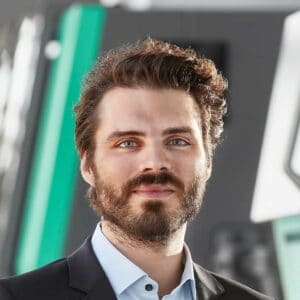
The company
ARBURG GmbH + CO KG, based in Lossburg (Baden-Wuerttemberg, Germany), is a mechanical engineering company and one of the world’s leading manufacturers of injection molding machines and additive manufacturing systems for plastics processing. The machines are manufactured exclusively in Lossburg.The family business was founded in 1923. In 1956, the first injection molding machines went into series production.
